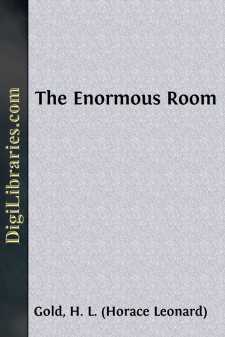Categories
- Antiques & Collectibles 13
- Architecture 36
- Art 48
- Bibles 22
- Biography & Autobiography 813
- Body, Mind & Spirit 142
- Business & Economics 28
- Children's Books 15
- Children's Fiction 12
- Computers 4
- Cooking 94
- Crafts & Hobbies 4
- Drama 346
- Education 46
- Family & Relationships 57
- Fiction 11828
- Games 19
- Gardening 17
- Health & Fitness 34
- History 1377
- House & Home 1
- Humor 147
- Juvenile Fiction 1873
- Juvenile Nonfiction 202
- Language Arts & Disciplines 88
- Law 16
- Literary Collections 686
- Literary Criticism 179
- Mathematics 13
- Medical 41
- Music 40
- Nature 179
- Non-Classifiable 1768
- Performing Arts 7
- Periodicals 1453
- Philosophy 64
- Photography 2
- Poetry 896
- Political Science 203
- Psychology 42
- Reference 154
- Religion 513
- Science 126
- Self-Help 84
- Social Science 81
- Sports & Recreation 34
- Study Aids 3
- Technology & Engineering 59
- Transportation 23
- Travel 463
- True Crime 29
At the Post
Description:
Excerpt
When Clocker Locke came into the Blue Ribbon, on 49th Street west of Broadway, he saw that nobody had told Doc Hawkins about his misfortune. Doc, a pub-crawling, non-practicing general practitioner who wrote a daily medical column for a local tabloid, was celebrating his release from the alcoholic ward, but his guests at the rear table of the restaurant weren't in any mood for celebration.
"What's the matter with you—have you suddenly become immune to liquor?" Clocker heard Doc ask irritably, while Clocker was passing the gem merchants, who, because they needed natural daylight to do business, were traditionally accorded the tables nearest the windows. "I said the drinks were on me, didn't I?" Doc insisted. "Now let us have some bright laughter and sparkling wit, or must we wait until Clocker shows up before there is levity in the house?"
Seeing the others glance toward the door, Doc turned and looked at Clocker. His mouth fell open silently, for the first time in Clocker's memory.
"Good Lord!" he said after a moment. "Clocker's become a character!"
Clocker felt embarrassed. He still wasn't used to wearing a business suit of subdued gray, and black oxfords, instead of his usual brilliant sports jacket, slacks and two-tone suede shoes; a tie with timid little figures, whereas he had formerly been an authority on hand-painted cravats; and a plain wristwatch in place of his spectacular chronograph.
By all Broadway standards, he knew, Doc was correct—he'd become strange and eccentric, a character.
"It was Zelda's idea," Clocker explained somberly, sitting down and shaking his head at the waiter who ambled over. "She wanted to make a gentleman out of me."
"Wanted to?" Doc repeated, bewildered. "You two kids got married just before they took my snakes away. Don't tell me you phhtt already!"
Clocker looked appealingly at the others. They became busy with drinks and paper napkins.
Naturally, Doc Hawkins knew the background: That Clocker was a race handicapper—publisher, if you could call it that, of a tiny tip sheet—for Doc, in need of drinking money, had often consulted him professionally. Also that Clocker had married Zelda, the noted 52nd Street stripteuse, who had social aspirations. What remained to be told had occurred during Doc's inevitably temporary cure.
"Isn't anybody going to tell me?" Doc demanded.
"It was right after you tried to take the warts off a fire hydrant and they came and got you," said Clocker, "that Zelda started hearing voices. It got real bad."
"How bad?"
"She's at Glendale Center in an upholstered room. I just came back from visiting her."
Doc gulped his entire drink, a positive sign that he was upset, or happy, or not feeling anything in particular. Now, however, he was noticeably upset.
"Did the psychiatrists give you a diagnosis?" he asked.
"I got it memorized. Catatonia. Dementia praecox, what they used to call, one of the brain vets told me, and he said it's hopeless."
"Rough," said Doc. "Very rough. The outlook is never good in such cases."
"Maybe they can't help her," Clocker said harshly, "but I will."
"People are not horses," Doc reminded him.
"I've noticed that," said Handy Sam, the armless wonder at the flea circus, drinking beer because he had an ingrown toenail and couldn't hold a shot glass. Now that Clocker had told the grim story, he felt free to talk, which he did enthusiastically. "Clocker's got a giant brain, Doc....




